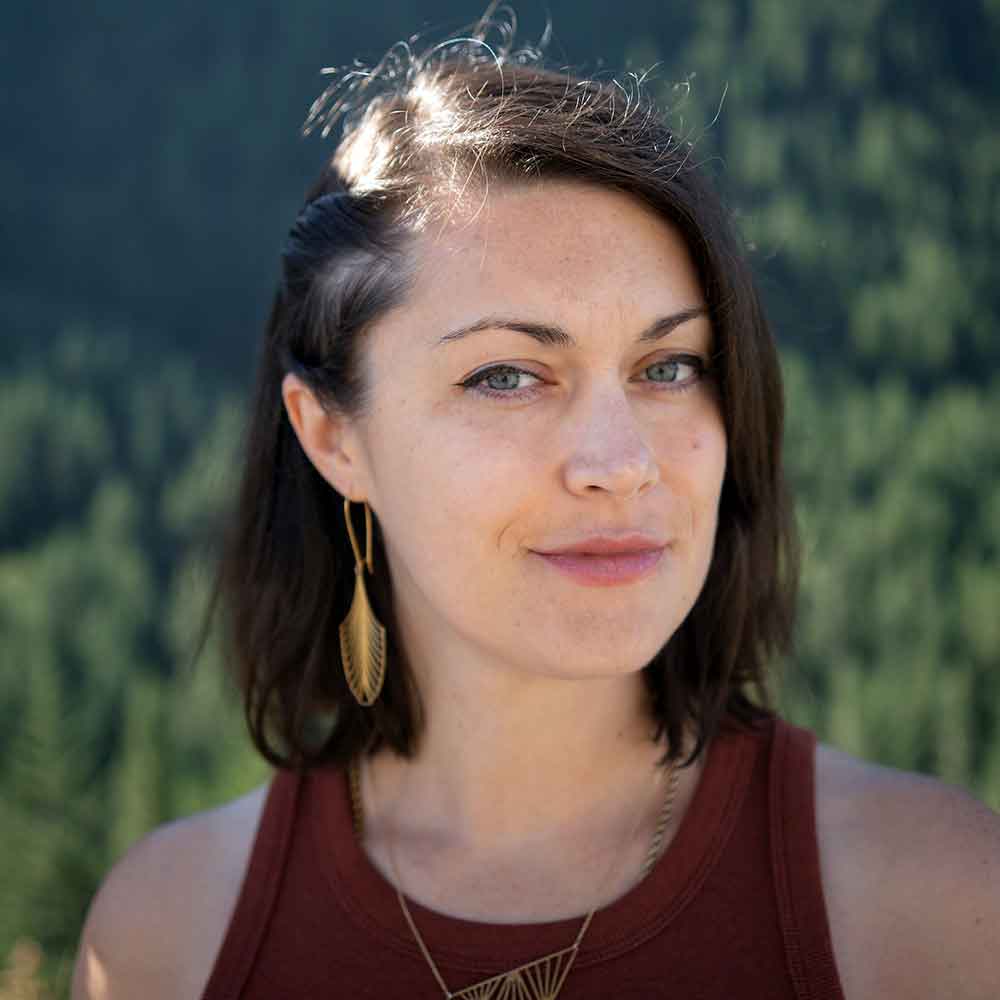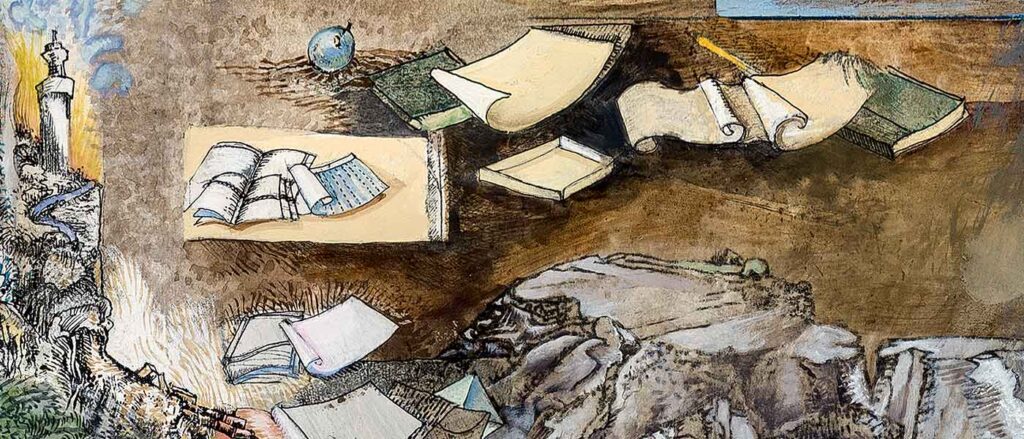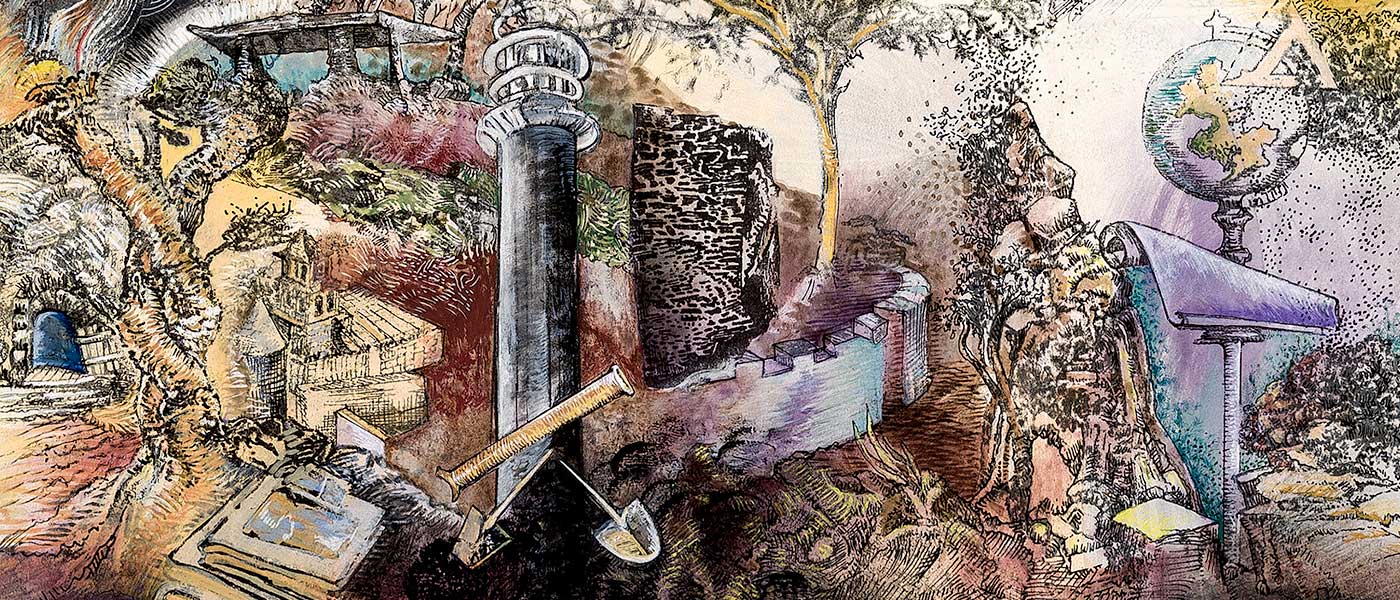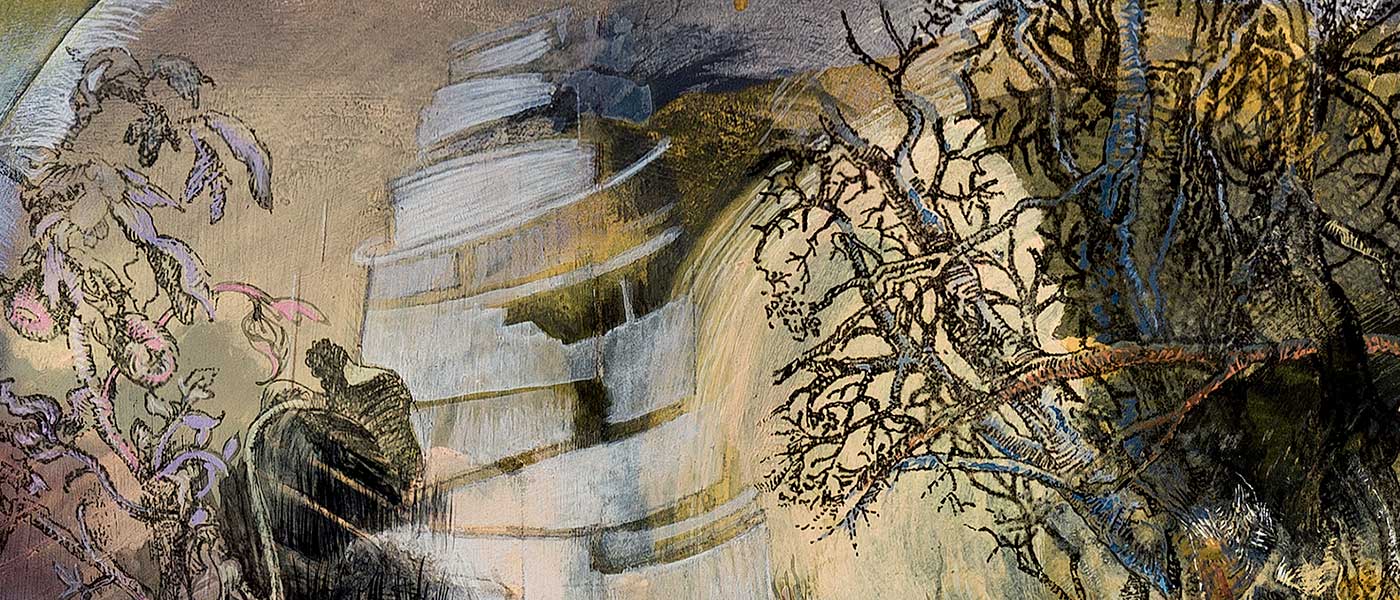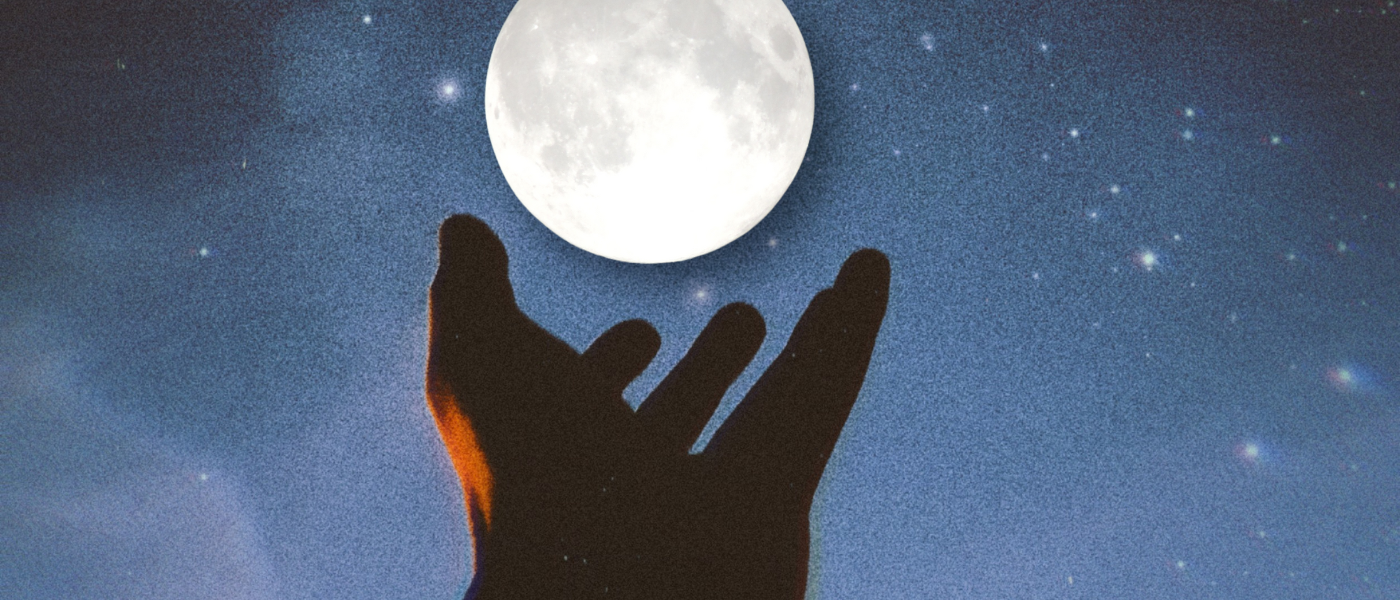Self-portrait skinning twenty-three auks
A little rasp in its throat whittled the exhaling air. The auk laid down at last
and stayed there, its breath
so quiet I didn’t know when
it gave way to a greater quiet.
It watched the mound of birds
shrink to the left of me, while the mound of skins and bones grew
to the right of me. I will show
you on my arm what we kept.
The bird—she—having come
to the end of swimming—
lifted the nictating membrane from each eye, saw all of this clearly.
Once my mother showed
me how, on a chicken’s body—
how a cloud shifted over my eyes
and I thought that I never could.
But there is pain at every stage of becoming a woman. Or a woman
is anything used to pain.
I’ll show you how I tallied
the days on my ankles, the soles
of my feet, where the skin still
belongs to me. How when he came at me, tried to rip off my shirt, I kept
laughing, laughed even as I
called for help and no one
came. Two people sat outside
that room watching movies,
snug in the knowledge that you get what you have earned. I emerged
smiling. I knew right away
that it is better to bury
the word—cloister it like
a seed. A woman is someone
who can clean blood out of anything. I write this poem bleeding. I make you watch me
peel the fat from the skin,
I make you look directly at it.
I can see it, most of the time,
and not suffer. And I can tell you
the color of the eyes when the membrane lifted: hazel. But this is your mistake:
to think those were the real thing.
The fog, the haw—how she protected
herself against invasion, flooding.
Her eyes were the membrane.
Translation
Instrument
My face in the glass replaced the exhibit:
sails raised in steed shapes,
bound east from America, soon
to berth on that feather-plush
continent: that bird’s stomach
stuffed with its own fat. Familiar,
yes. Like and unlike, yes. I’ve fed
meat to its monuments
in hushed tones. The auk, meanwhile,
sheltered her egg as sailors built
a stockyard around her. Around it.
For to make a body a product,
the first step is devaluation. God
made the innocence of so poor a creature,
observed one colonist,
to become such an admirable instrument
for the sustenation of man. Before his eyes,
hundreds of auks were herded down
gangplanks into the boats. Beside him,
Mr. L— proposes a translation of Beothuk
to “the Good Night Indians.” I am not
constructing a metaphor. The auk and the Beothuk
do not represent each other. This is
the diagram for a machine. An inheritance
that feeds me daily. In a film
at the settlement museum, a priest concludes,
When she dies, she will go to heaven.
Gale and these punched sails gasping
for the weight they carry. Steed saddled
and trussed to the plow, all along
its gutting. An animal is anything
with a fence built around it. A beastly
sleet now cauls it. I thought I saw
my reflection, odd twist to the mouth.
I sliced it out. It grew back.
I sliced it out.
Sustenation
Eat quick what will not keep:
one feat that makes the worthy
worthy: look, I stayed in a castle:
ate black pudding: a trick to keep
blood fresh: Feat the Second:
for who survives, deserves
salvation: plus, Ancestry.com
traces my descent from kings,
thus I arrived feeling not that I
belonged: that this belonged to me:
likewise did the English call it
Newfoundland, as though till they
arrived it was vacant; so too
could they claim the last
Beothuk woman died of “consumption,
the fatal disease of her nation”:
(my italics): for blood will flee
when given exit: so this ruined
fortress leaking rain: so this vein
of mine leaking pudding: so too
the drained body that fed it:
the latest being I’ve let die
for my maintenance: stuttering
heart after stuttering heart.
Creature
Fluttery little heart beating there on the white
tile floor of the Palace of Providence.
Ventricles pulping away and spits of blood;
puffs of small steam rise
from the still-warm organ. The tile is stained,
and the shape is spreading,
crisply defined by a sheen off its curved edge.
Meanwhile, in a meeting of the American
Philosophical Society, Mr. A— G— argues
that the real translation of Beothuk
is “I am going home.” Fluttery little heart
lying there on the white stone,
a fresh sea lapping in, globules of foam left behind
beside it. They inch back down the slope,
every glob for itself, the bubbles inside them pop-
popping so the foam becomes,
before it reaches ocean, not worth mentioning.
Recall that just 350 words
in the Beothuk language were recorded, yet Mr. G—
observes, “it is puzzling
that the Beothuk should have had no word of their own
for alive.” As though all that has happened
was preordained—and this heart cannot travel back
through the slit-wide belly,
recongeal where the veins were severed, then glint like a sunset
while the gut is sewn shut around it. Nor the down
reattach, the quills reinsert into their follicles. Let us all
shrug in unison: Oh well. Fluttery
little heart in my palm, where it has been always. It has never
belonged to me, but if it stops it will.
Uncanny valley

Primorskaya
Milk in a glass—morning. I drink it up—not to get attached.
As when I fled north—to where the veined pines—kept
on till birches—ghastly in how gone. Such as those white
nights on the Arctic Circle—how the light ushered down
in sheaves—translucent so its own self could shine through its
sheaving. We climbed the scaffold outside his building—
many levels—saw the whole city served out on a plate unto
its own appetite. This was much. Even steam collapsed
back into its mouth. A bead of water rolled off a brace—hit
the guitarist’s nape—drooled down the scooped tendon
tenting it—ribboned like rare meat—crawled beneath
his collar—kept trailing. I lifted on my toes to reach
his neck—the salt & blood-smell of it—felt light hairs on
my lips—& he said, in our stunted Russian—forbidden—
nelzya. Such that I felt then-sudden much the air around—
how it stretched out—gray bulk of space—how it sliced
blank of soot all the stiff buildings—regiment of scrubbed
pelvises—& shoved so north up the pole—its twitching need—
that it left the earth behind—such that I looked around myself
& all I saw was sky—its glass bell—& the city become
its own miniature—balsam & steam—& let that it should eat
itself—so there be more space for us—me & all that leaving.
